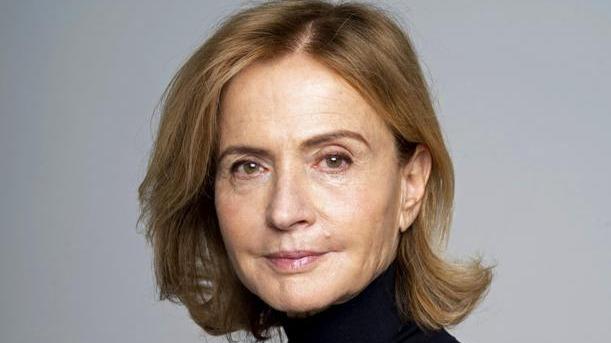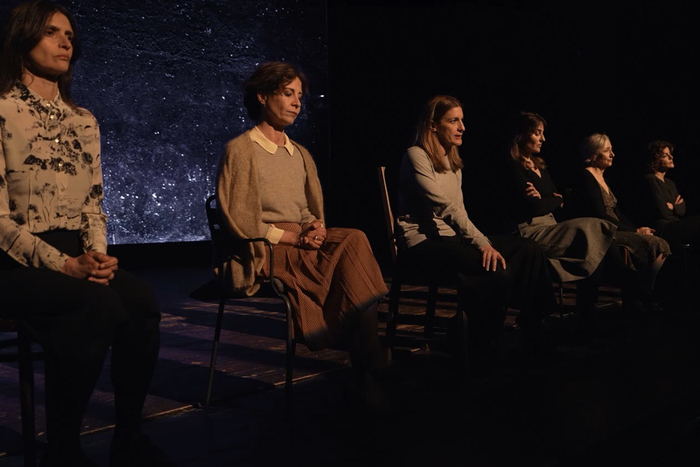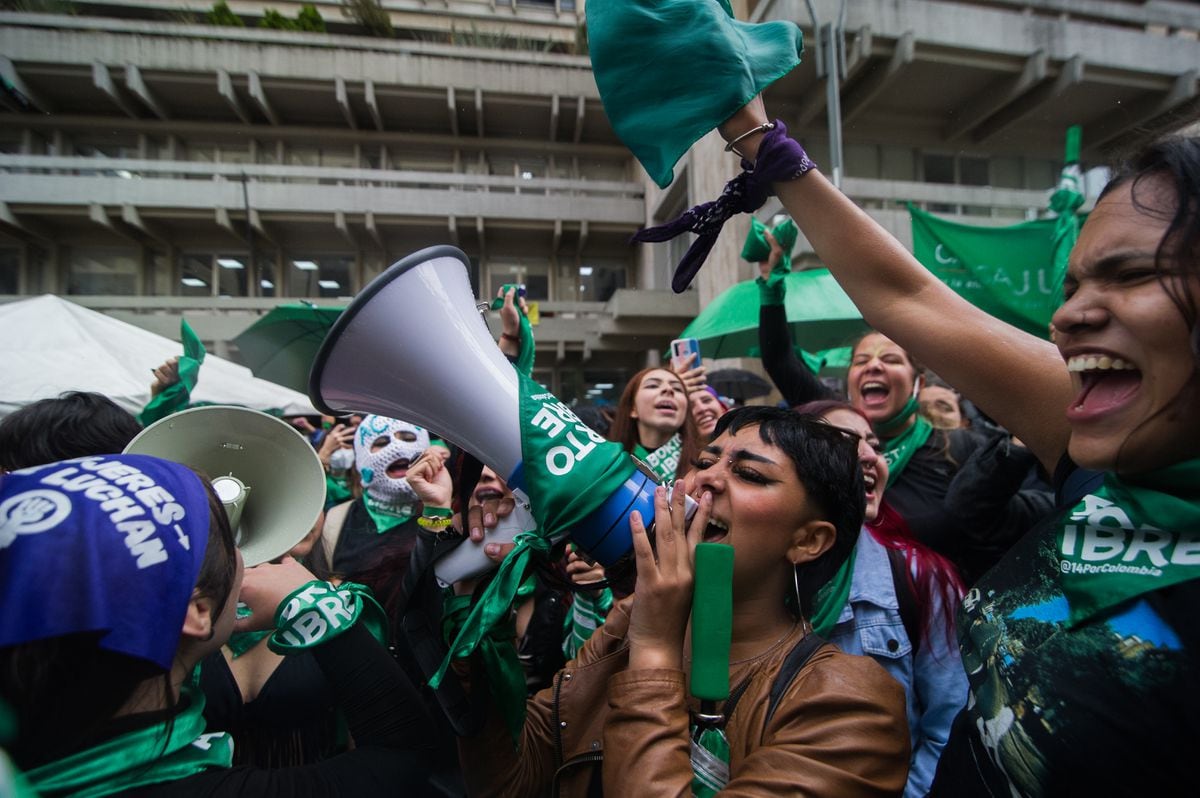In her new novel,
The Other Woman
, the filmmaker and writer Cristina Comencini treats in a very personal way an eternal theme of literature as of life: the rivalry between two women for a man.
Elena, 25, is in a relationship with Pietro, who is twice her age as well as an ex-wife, Maria, and three children.
Nothing but very classic, if Maria had not adopted an assumed identity to get in touch with Elena via Facebook and bring her to dialogue, while confiding herself on her painful divorce and on the man that she liked – Pietro, of course, whose name she simply changed…
To discover
To listen > our Scandals podcast "Kate Moss: sex, drugs and rock'n'roll"
If this artifice could prove fatal to the relationship between Elena and Pietro, it also revealed these two women to themselves, and their confidences are for the author of
Quatre Amours
the opportunity to lead, via the novel, an investigation into one of his favorite subjects: love and family relationships, and what they say about our current society.
In video,
The loves of Anaïs
, the trailer
Miss Figaro.
– While diverting the figure of the love triangle, doesn't your novel also deal with the clash of generations?
Cristina Comencini.–
Elena and Maria, who lived with the same man at different times and ages, indeed belong to two generations.
They criticize each other, confront each other, tease each other, but also learn from each other.
Elena wants to be in strength, conquest, performance.
Maria had a completely different trajectory;
she had children and lived through a period of transition, where the role of women, while evolving, was still very traditional.
They also embody the way in which we construct ourselves in relation to parental models.
How we hope not to be like those who gave birth to you – Maria and Pietro wanted to raise their children very differently from the way they were raised –, and how we come to join them: Maria recriminates as her mother could do it, Elena, who
"The past is never dead, it's not even past," Faulkner wrote. Isn't that one of the key ideas of the book?
We cannot ignore what has been.
When we remarry or begin a new romantic relationship, we must be able to move forward without making a clean sweep of the past.
Love is not a blackboard that can be erased at leisure to write a new story.
What we have experienced remains in us, in our flesh and our spirit;
it cannot be denied without weakening the present relationship.
Pietro always wants to start all over again, while Maria and finally Elena understand that it is not possible.
And if that slows them down at first, it also gives them a depth that remains unknown to Pietro.
As in
Quatre Amours
, you give voice to the different characters throughout the novel.
What purpose ?
It's a way of diffracting the self into various personas.
A bit like what is happening in our society.
Everyone has a very strong individuality, sometimes too much, and we have lost the sense of community, of the collective.
And, at the same time, we look for each other and we try to meet the other… The book is divided between Elena's story and the speeches of each other.
It realizes that there is no one who understands, sees and knows everything, only a juxtaposition of multiple selves that form a group.
Monica Bellucci, the Cover Story
In images, in pictures
See the slideshow06 photos
See the slideshow06 photos
You have often been described as a
“
columnist of the intimate”.
Do you agree with this idea?
I am a chronicler of the intimate if the intimate is the social, if we consider that it is the dough from which society is kneaded.
I have always inscribed the intimate in history.
Quatre Amours
, for example, is a book about the fact that nothing holds people back today, no ideal or no ideology, no big movement… But it's exposed via what happens in the private sphere.
I tell society through the focal point of personal relationships.
Dear French cousins
, your letter on the coronavirus and confinement went viral when it appeared in
Liberation
in March 2020… Why did you write it?
Italy was then living a little ahead of what France was going through.
My partner is French – we had recently moved in together and had chosen to stay in Italy because the apartments are larger than in Paris, more livable in times of confinement.
He could not convey to his family and friends in France what was happening on the other side of the Alps, and I probably wrote partly for this reason.
I was developing the idea that confinement and the Covid also represented a great private ordeal.
In normal times, it is possible to go out and clear your mind;
there, stuck at home, the omnipresence of the other was an accelerator which sometimes caused couples to explode in a spectacular way.
These three months together were equivalent to three years… I wanted to remind you that society is not built solely on trade, work, production.
It is also built on our private relationships.
The intimate is social and even political.
What did you think of MeToo, you who are the daughter of director Luigi Comencini, who shot a dozen films and adapted two of your books to the cinema?
That it had to happen.
Everything that seemed normal to us, such as the relationship of seduction between the actress and the director or the director, is no longer so: being a great artist does not give you the right to use the body of your actress manipulative way, under the pretext that she is your muse.
Women realized that it was not necessary to play this game to make a career, that one could say it and adopt other behaviors.
There have been excesses, but every revolution has its excesses.
And then, so many things came out about what was happening in the Church or within the family… That's what I was talking about in my novel and my film
The Beast in the Heart
.
Many people claimed then that it was rare, unique, that sexual predation, rape, incest took place in the countryside, within disadvantaged backgrounds… when this is obviously not the case.
Listen: the editorial staff podcast
Isn't writing ultimately putting into words what has been passed over in silence?
Indeed, I think that the writing, the narrative come to me from the need to name what is hidden.
All authors do it in one way or another, but, like all women who write, I travel with two suitcases: that of the culture of men, which I was taught during all my studies, of primary school to university, and that of the silence of women, mothers, grandmothers, ancestors, of all those who preceded us.
Our art has two sources, and we use one by transforming it to say the other...
The Other Woman
, by Cristina Comencini, Stock Editions, 220 p., €20.50.
Translated by Béatrice Robert-Boissier.










/cloudfront-eu-central-1.images.arcpublishing.com/prisa/Z45E6KV7VJGUXAKJWH7VA4NJSE.jpg)




